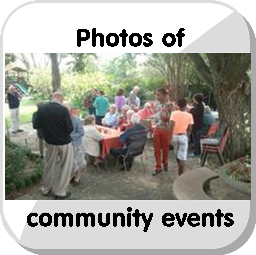|
by David Wertheim Aymes
(Editor: In their deliberation, the Board of Trustees have been giving a lot of thought to capital. The Trustees are entrusted with capital that derived from the sale of the Windmill Property. The church receives money from legacies, which is capital, that needs to be employed in a new and very conscious way, so that the notion that money disappears into a “black hole” is not held by the community. As editor of this communication to the community, I felt that an article on the correct concepts related to capital would be of benefit and requested this article for us all.) Let’s take the example of a lumberjack. Nature provides the trees and he, with his wits and skills chops them down and trades in the wood that results. He lives off this process. He can afford food, clothes, education of his children and a roof over his head. If he employs others to assist in his efforts, he buys a shed, some more advanced wood-processing equipment, a wagon to transport the wood and other assets associated. This becomes capital. He created capital that remains in place in addition to his daily needs for food and lodging as it were. This capital that he came about through his personal capacities can be used to the same effect by anyone once he has sold it or retired. It no longer depends on him. His business activity becomes subject to the wits and skills of others. They should have the freedom to do with the capital as they please. They might for example stop the wood business and buy more transport wagons because there is now a need for transporting workers. Capital becomes separated from its originator in this way and also moves along when it becomes attached to a new originator. The above gives a great clue as to what people can do with their capital when they die. Once dead, people can no longer attach their own wits and skills to their capital. They can try to rule from the grave and assign it to certain people or preferred activities, but their influence becomes less and less over time as people become more and more distant from the originators purpose, and conditions of life move on. From an economy point of view, the capital left behind by people that die needs to be transferred to people who can and want to continue with that particular endeavour. What happens here is that the capital gets attached to younger and vibrant human capacity. The capital can then evolve what it is attached to, grow and diversify. From a liberty perspective, this capital can be given as gift money, donated, to religious renewal, training and study bursaries and so on. In this way the capital supports the very human wits and skills required in teaching, training, religious searching and practice. All this ends up spreading to the people that need this in their economy or rights associated endeavours within the social order. Finally, in leaving legacies to family members just because they are family might not be the result society as a whole requires. Society wants capital attached to the very best human competence, essentially spiritual in nature, so that the capital is best used in service of the whole. In summary then, the spirit within people is everything. Capital dies without people being directly connected to it for it is exactly the spirit within people that creates it. Gifting capital, that one can oneself no longer ‘care’ for with ones own conscious activity, is providing the possibility for capital to become alive and active again.
0 Comments
|
Article Archives
December 2022
2023 - January to December
2021 - January to December 2020 - January to December 2019 - January to December 2018 - January to December 2017 - January to December 2016 - January to December 2015 - January to December 2014 - November & December 2013 - July to December 2013 - January to June 2012 - April to December Send us your photos of community events.
Articles (prefaced by month number)
All
|

 RSS Feed
RSS Feed